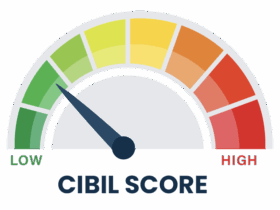Digital real estate refers to acquiring and developing online assets that generate revenue. These assets include websites, domain names, mobile apps, e-commerce stores, and digital products like online courses or e-books. The appeal of digital real estate lies in its scalability, global reach, and potential for passive income streams. Unlike traditional brick-and-mortar businesses, digital assets are accessed and monetized from anywhere in the world, 24/7.
Choosing your digital real estate strategy
Before diving into digital real estate, you must identify a strategy that fits your interests, skills, and goals.
- Website flipping– Similar to house flipping, website flipping involves purchasing an existing website, improving it (through design, content, or SEO optimization), and reselling it for a profit.
- Domain name investing– This strategy involves acquiring valuable domain names and developing them into websites or reselling them to interested buyers for a markup.
- E-commerce empire building– Online shopping, building, and scaling an e-commerce business can be a lucrative digital real estate venture. This could involve creating an online store, dropshipping products, or developing a private-label brand.
- Affiliate marketing– Affiliate marketing allows you to earn commissions by promoting other companies’ products or services on your website or digital real estate business
- Digital product creation- Developing and selling digital products like online courses, e-books, software, or mobile apps can be a powerful source of recurring revenue.
Acquiring digital real estate
Once you’ve settled on a strategy, it’s time to start building your digital real estate portfolio.
- Research and market analysis– Conduct thorough research to identify profitable niches, analyze competition, and assess demand for your digital product or service.
- Domain name selection- If your strategy involves websites or e-commerce, secure a memorable, brandable, and SEO-friendly domain name that resonates with your target audience.
- Website development or acquisition– Depending on your approach, you can develop a website from scratch or purchase an existing site that aligns with your goals.
- Content creation and optimization– High-quality content is the lifeblood of any successful online venture. Invest in creating valuable content and optimizing it for search engines to drive organic traffic.
- Marketing and promotion– Implement effective marketing strategies, such as search engine optimization (SEO), social media marketing, email marketing, or influencer collaborations, to increase visibility and attract potential customers.
Monetizing your digital real estate
Once you’ve acquired and developed your digital assets, it’s time to start generating revenue.
- Advertising and sponsorships– Monetize your website or digital platform by selling advertising space or securing sponsorships from relevant brands.
- Affiliate marketing- Promote other companies’ products or services on your website or digital platform and earn commissions on successful referrals or sales.
- E-commerce sales– If you’ve built an online store or e-commerce platform leverage various sales channels, including your website, social media, and marketplaces like Amazon or Etsy.
- Digital product sales- Sell digital products like online courses, e-books, software, or mobile apps directly to your audience or through third-party platforms like Udemy or Gumroad.
- Subscription models-Offer premium content, services, or access to exclusive features through a subscription-based model, generating recurring revenue streams.












